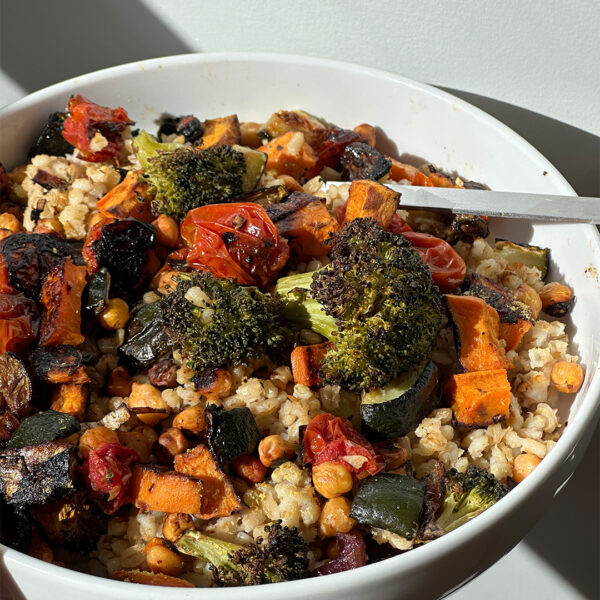Nothing can be more uncomfortable than having a sensitive stomach. It can debilitate your upcoming plans and going out with friends, or just be a great source of pain. And finding the source of the symptoms can be equally as challenging. It’s important to remember there is a trigger that is leading to discomfort and a sensitive stomach.
One of the greatest rewards I get to experience as a wellness expert and nutritionist is helping clients to heal. And stomach issues are very commonly what we are working toward healing. If you are genetically predisposed to a sensitive stomach, you will understand what I mean. These tummy troubles can really come and go, and your food should be helping, not hurting you.
So often we want to blame genetics or spices, but inflammatory foods are as much the culprit as anything else. Blanding out your diet from processed and inflammatory foods is truly the starting point. And utilizing the help of a nutritionist or health coach could help you identify any underlying triggers that may be causing the problem. They can also adjust the supplements you’re taking in order to support better digestion, because that’s where a sensitive stomach starts.
Some common symptoms of sensitive stomachs are:
Bloating
Cramping
Indigestion and heartburn
Constipation
Diarrhea
Common triggers to the symptoms are:
Stress
Malabsorption of nutrients
Inflammatory foods like processed foods, additives, sugar, and white flour
High-fiber foods—only when there is a greater underlying issue
Food intolerance—even healthy foods can be the culprit if you’re not aware of the issue
Alcohol
Ways to improve it:
Manage stress better
Follow a meal plan to bland out taste buds and help heal your body
Take supplements to support better digestive health
Soothing herbal tea: camomile, lavender, and peppermint
At the top of the list for improving sensitive stomach issues is improving your diet. Here are five meals to get you started in the right direction.
Cara Clark is the owner and primary Certified Nutritionist of Cara Clark Nutrition. Cara works with individuals and groups to promote overall health and to manage a wide range of nutrition-related issues. With a ‘non-dieting’ approach, she has helped clients manage weight, energy, performance, diabetes, thyroid related disease, allergies, eating disorders, and more.
The content provided in this article is provided for information purposes only and is not a substitute for professional advice and consultation, including professional medical advice and consultation; it is provided with the understanding that Poosh, LLC (“Poosh”) is not engaged in the provision or rendering of medical advice or services. The opinions and content included in the article are the views of the author only, and Poosh does not endorse or recommend any such content or information, or any product or service mentioned in the article. You understand and agree that Poosh shall not be liable for any claim, loss, or damage arising out of the use of, or reliance upon any content or information in the article.
Up next, be the first to know our weekly content and sign up for our Poosh newsletter.


































